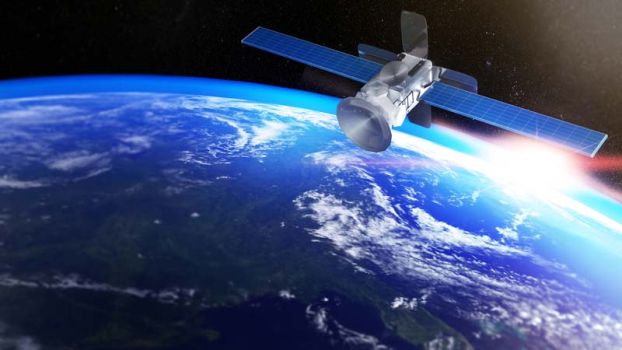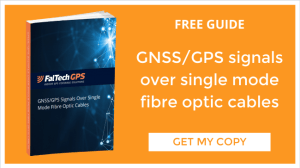Do I Need a Licence To Operate a GPS Repeater?

A GPS repeater system (sometimes referred to as a GPS re-radiator) brings satellite signals indoors, providing positioning and timing signals inside areas where they are not usually present.
In common with any device that emits radio frequency (RF) signals, it has the potential to cause interference with any other RF system in its vicinity.
Most telecoms regulators, including Ofcom in the UK, require repeater users to purchase a license for their device.
The Background
Until 2012, there were no rules, regulations or other guidance in place regarding the permitted operating parameters of GPS signal repeaters.
Some repeaters on the market were far more powerful than was necessary, and in some circumstances caused potentially catastrophic situations.
For example, a repeater in a hangar on an airfield in Germany was emitting such high levels of signal power that GPS receivers on board aircraft taxiing and landing near the building were receiving the repeated signals. The aircraft were also receiving “naturally occurring” signals from the satellites overhead, which caused the GPS systems to become wildly inaccurate.
Similar incidents occurred on airfields in Canada and the USA.
What Happened Next?
Unsurprisingly perhaps, the market for GPS repeaters was effectively shut down after these incidents.
During March 2012, UK telecom regulator Ofcom entered into consultation with equipment manufacturers such as Roger-GPS and other interested parties including the CAA, with a view to putting a licencing regime in place.
The consultation document set out a proposal to implement a light licence regime to authorise the use of GNSS repeaters in the UK. This is largely based on the premise that Ofcom considers that a repeater that is compliant with relevant ETSI standards is unlikely to cause harmful interference effects.
ETSI directive EN 302 645 refers.
The consultation document published by Ofcom is seen at the foot of this webpage, under the heading Supporting Documents.
Consultation Results
In June 2012, having considered the responses to the consultation, Ofcom concluded that they would proceed with the implementation of a light licence approach in line with the proposals outlined in the consultation.
Their Statement on Authorisation regime for GNSS repeaters summarises the findings and sets out the proposed conditions of the regime. It can be found on the same web page as the consultation document mentioned above.
This is an extract from the Statement, para 2.5, that describes the situation quite succinctly.
“Within Europe, GNSS repeaters have been available for a number of years. Some European countries, including the UK, identified concerns about the availability of devices with no defined radio parameters and which lacked conformance testing to limit and regulate any potential interference to GPS applications. The unregulated use of poorly installed and illegal GNSS repeaters that exceed radio parameters that are now embodied in the ETSI standard, have caused interference events in Germany, USA and Canada. In the German incident, a GNSS repeater at an airport hangar caused false alerts to aircraft taxiing and landing at the adjacent runway. For this reason, Ofcom has thus far prohibited the use of GNSS repeaters in the UK.”
What’s the difference between GNSS and GPS?
The main parameter specified in the license regime is that the maximum power output (EIRP – Effective Isotropic Radiated Power) is now limited to -60dBm, or 0.000001mW.
This generally means that repeated signal levels seen indoors will be very similar to the live signals seen outdoors. A repeated signal is unlikely to affect other RF systems in the vicinity and will not be detected outside the building in which the repeater is installed.
Overview of Licence Conditions
Extract from Para 1.2 of the Statement:
“Having considered the responses to our consultation published in March 2012, we have concluded that we will proceed with the implementation of a light licence approach in line with the proposals we outlined in our consultation. Consequently, we will:”
- License GNSS repeaters and record (and hold) all active and archived locations (no prior or post coordination required from aviation bodies).
- Set an indefinite licence term and ensure we have an archive database of all sites that are or have been licenced.
- Set a one-time licence fee of £75 – no periodic renewal required.
- Allow licences to be traded on an outright or concurrent basis (partial trades split geographically or by frequency will not be permitted).
- License repeaters in any of the three frequency bands; 1164-1215 MHz, 1215-1300 MHz, 1559-1610 MHz. There is a graphic here that illustrates which GNSS signals are present in each frequency band.
- Permit the inclusion of multiple installations for GNSS repeater radiating elements at one address, provided they are set out on the licence.
- Allow GNSS repeater installations in defined fixed locations only (mobile use will not be authorised).
- Only permit GNSS repeater use indoors (as defined in the licence).
- Use the ETSI standard as the compliance assessment baseline for GNSS repeater devices manufactured or assembled from component parts.
What Does This Mean For Me and My GPS Repeater?
A licence is required for each installation.
A licence application form is available in PDF and RTF formats, and calls for some basic details to be provided for the record.
The light license regime is not an onerous process and the one-time £75 fee could be described as modest.
FalTech is happy to advise on how to obtain and submit the information required to complete the application form to Ofcom’s satisfaction. We can also complete and submit the application on your behalf for a modest fee.
Contact Us
To find out more about GPS repeaters contact the experts here at Faltech today.
Image Source: Dreamstime

